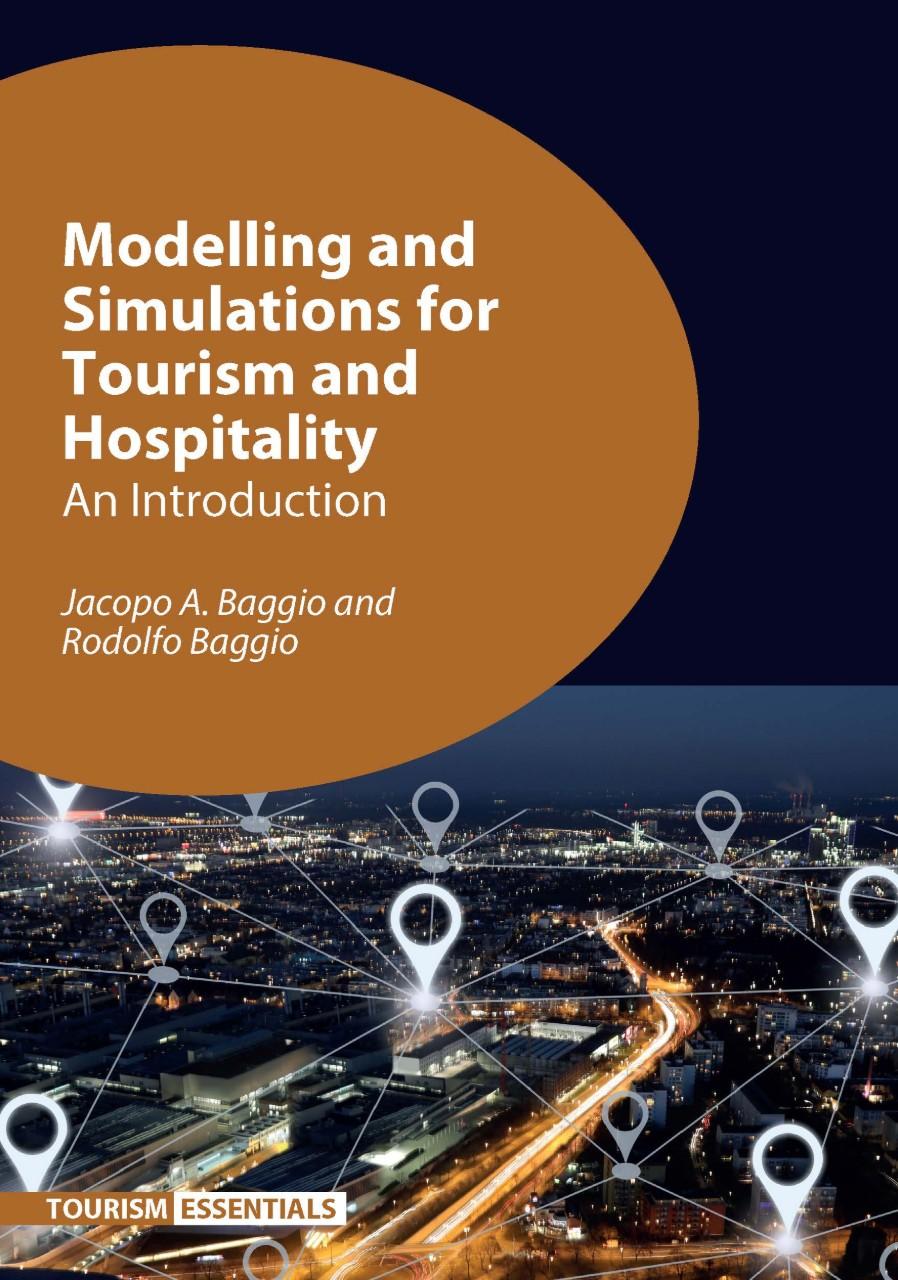
Comprendere il turismo attraverso i modelli
RODOLFO BAGGIO DEL CENTRO DONDENA HA PUBBLICATO UN LIBRO SULL'USO DELLA MODELLAZIONE E DELLA SIMULAZIONE PER IL TURISMO E L'OSPITALITA'. NE PUBBLICHIAMO UN ESTRATTONell'ultimo decennio, la diffusione di potenti strumenti hardware e sofisticati strumenti software hanno stimolato un aumento della modellazione e della simulazione numerica di sistemi complessi. Nonostante ciò, il settore del turismo e dell'ospitalità è ancora in ritardo, soprattutto per quanto riguarda i più recenti progressi metodologici. Tuttavia, il turismo e l'ospitalità sono fenomeni intrinsecamente complessi e queste tecniche hanno già dimostrato, in molte situazioni, la loro capacità di valutare e spiegare meglio una serie di questioni all'interno del dominio, di consentire la costruzione di scenari intuitivi, soprattutto quando gli esperimenti sul campo non sono fattibili, e di fornire indicazioni utili per la pianificazione e le attività operative. In Modelling and Simulations for Tourism and Hospitality: An Introduction,pubblicato da Channel View (2020), Rodolfo Baggio(Research Fellow del Dondena Centre for Research on Social Dynamics and Public Policy della Bocconi e Docente del Master in Economia del Turismo della Bocconi) e Jacopo A. Baggio(Assistant Professor, University of Central Florida) offrono un'introduzione alle vecchie e nuove tecniche di modellazione e simulazione, fornendo descrizioni teoriche sintetiche e una buona serie di esempi che discutono metodi, strumenti e possibili ulteriori sviluppi. L'obiettivo è quello di dimostrare che con un approccio rigoroso e strumenti adeguati, questo mondo è relativamente indolore da affrontare, e può essere di grande valore sia per gli accademici che per i professionisti. Con il permesso di Channelview Publications e degli autori, Bocconi Knowledge pubblica un estratto del libro.
Essentially, all models are wrong, but some are useful. This famous aphorism, attributed to the renowned statistician George Box, seems to be a standard beginning for any book on modelling and simulation. Despite its resemblance to a joke, the aphorism contains an essence of truth: that this is more an art than a science.
Even though a vast array of scholars and practitioners of all disciplines have produced and implemented a wide number of methods and tools, the assembly and operation of a set of techniques that can supply meaningful answers to a question is a task that requires not only good technical competences but, even more importantly, good experience and a familiarity with many, often not completely clear, concepts.
 Moreover, given the contemporary landscape, it would be quite uncommon for one individual to have all the skills and the practice required. Modelling is thus a multidisciplinary endeavour, in which diverse know-hows need to be composed in a smooth and harmonious way.
Moreover, given the contemporary landscape, it would be quite uncommon for one individual to have all the skills and the practice required. Modelling is thus a multidisciplinary endeavour, in which diverse know-hows need to be composed in a smooth and harmonious way.The tourism domain has progressed considerably in its ability to understand the phenomenon and the components that make this one of the most interesting and fascinating areas. However, the tourism researcher’s or analyst’s toolbox has seen little improvement. Most of the works published use rather traditional approaches and methods and concentrate more on a wide number of detailed investigations, often losing sight of the larger issues.
With the recognition, nowadays well grounded, of the complex nature of the phenomenon, of the systems involved and of their relationships, internal or external, there is a need, well expressed on several occasions, to proceed towards different perspectives. Today, this is also imposed by the incredible advances in information and communication technologies that have made available a wealth of means, algorithms and techniques that can be usefully employed for the purpose.
With this work, we try to raise the awareness of tourism and hospitality researchers by providing an essential introduction to the most popular methods useful for modelling and simulating systems and phenomena of interest for those who deal with the intricate and complex world of tourism.
We are well aware that we only scratch the surface of the domain, and we do not pretend to provide a fully-fledged manual, as this would be an almost impossible endeavour. Some of the techniques described here require a highly complicated and sophisticated technical background and the interested reader can refer to specific textbooks on such techniques. Here, we have chosen to focus on the main concepts and avoid, as much as possible, the technicalities and descriptions of the nuts and bolts of the methods introduced.
di Rodolfo Baggio e Jacopo A. Baggio
